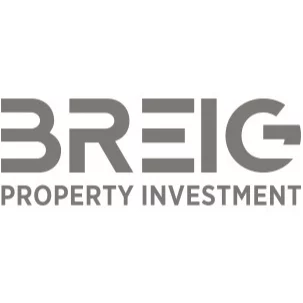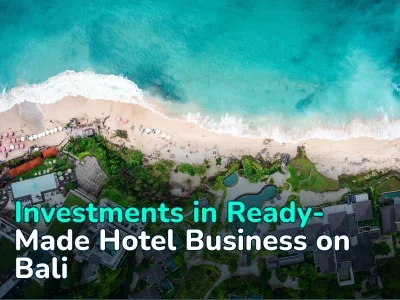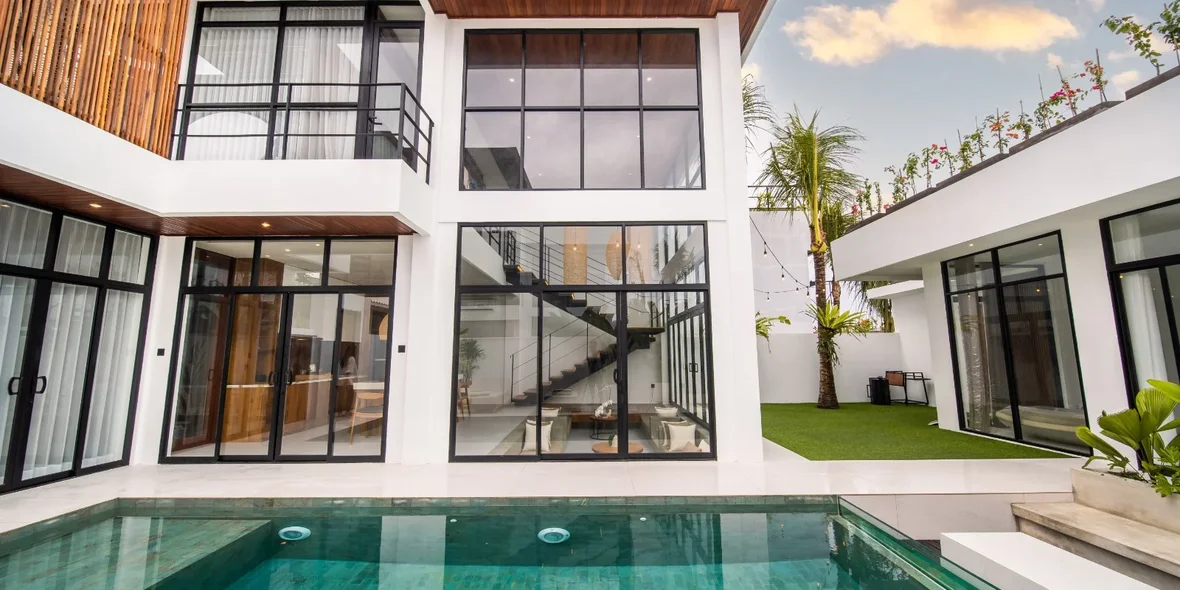
“Even a volcanic eruption did not affect the island market as much as COVID-19.” How to build and make money on Bali real estate even in times of crisis. Expert’s opinion
What is the construction process in Bali and how does it differ from practices in other countries? How does the island's real estate market behave in times of crisis and during periods of recovery? How to choose the right location so that the property generates a stable income? Nikita Shelomentsev, founder of the BREIG group of companies, shared his expert opinion with us.
“Due to the construction boom, the quality of contractors in Bali has decreased”
— Why is construction experience of other countries only partially applicable in Bali? What is this connected with?
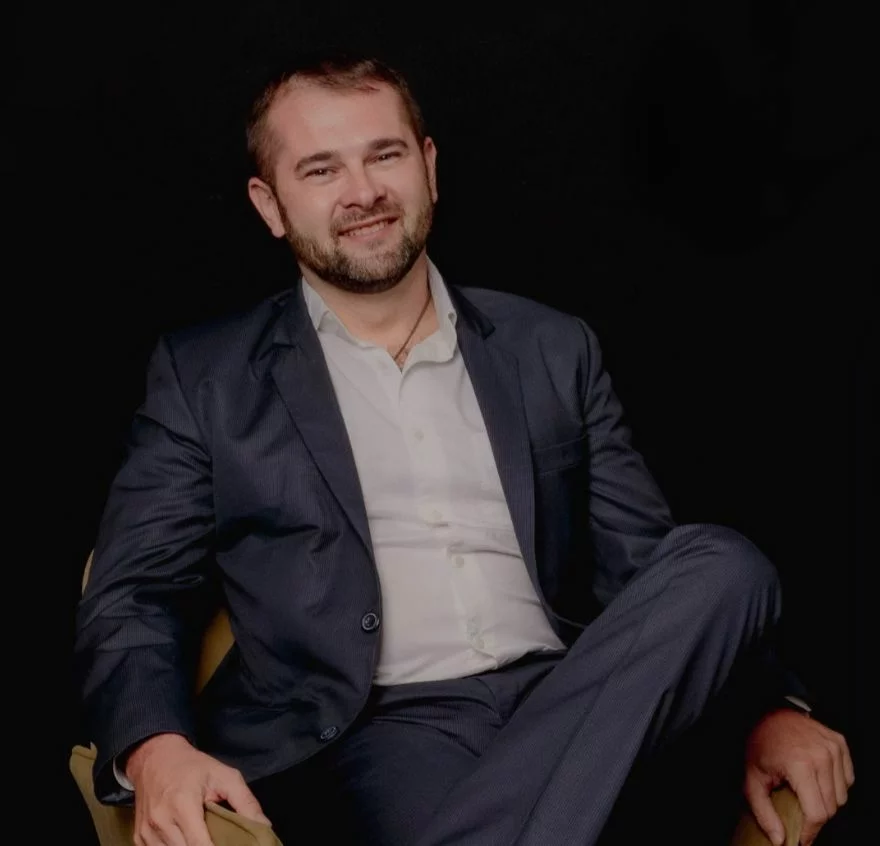 — First of all, in Bali there are a number of environmental factors (seismic activity, high humidity, rainy seasons), which are directly reflected in building codes—they, of course, need to be taken into account. At the same time, in other countries, specialists may face other problems, for example, they need to take into account the presence of the winter season.
— First of all, in Bali there are a number of environmental factors (seismic activity, high humidity, rainy seasons), which are directly reflected in building codes—they, of course, need to be taken into account. At the same time, in other countries, specialists may face other problems, for example, they need to take into account the presence of the winter season.
The second distinctive feature is that Bali has experienced a construction boom in recent years, as a result of which it has become critically important to take into account the fact that the quality of specialists and workers in contracting organizations is often significantly lower than we would like. Accordingly, all processes of interaction with the contractor, with their management and engineering service will require many times more coordination.
In addition, it is necessary to anticipate the presence of a greater number of errors both in the documentation and in the processes that are implemented by local contractors. The reason is that in recent years, many people on the island have retrained as builders, although they previously did not have sufficient experience in this area.
Therefore, you will have to compensate for all the lack of expertise, experience and competencies that will be encountered in contracting organizations by creating the necessary competencies within your development company.
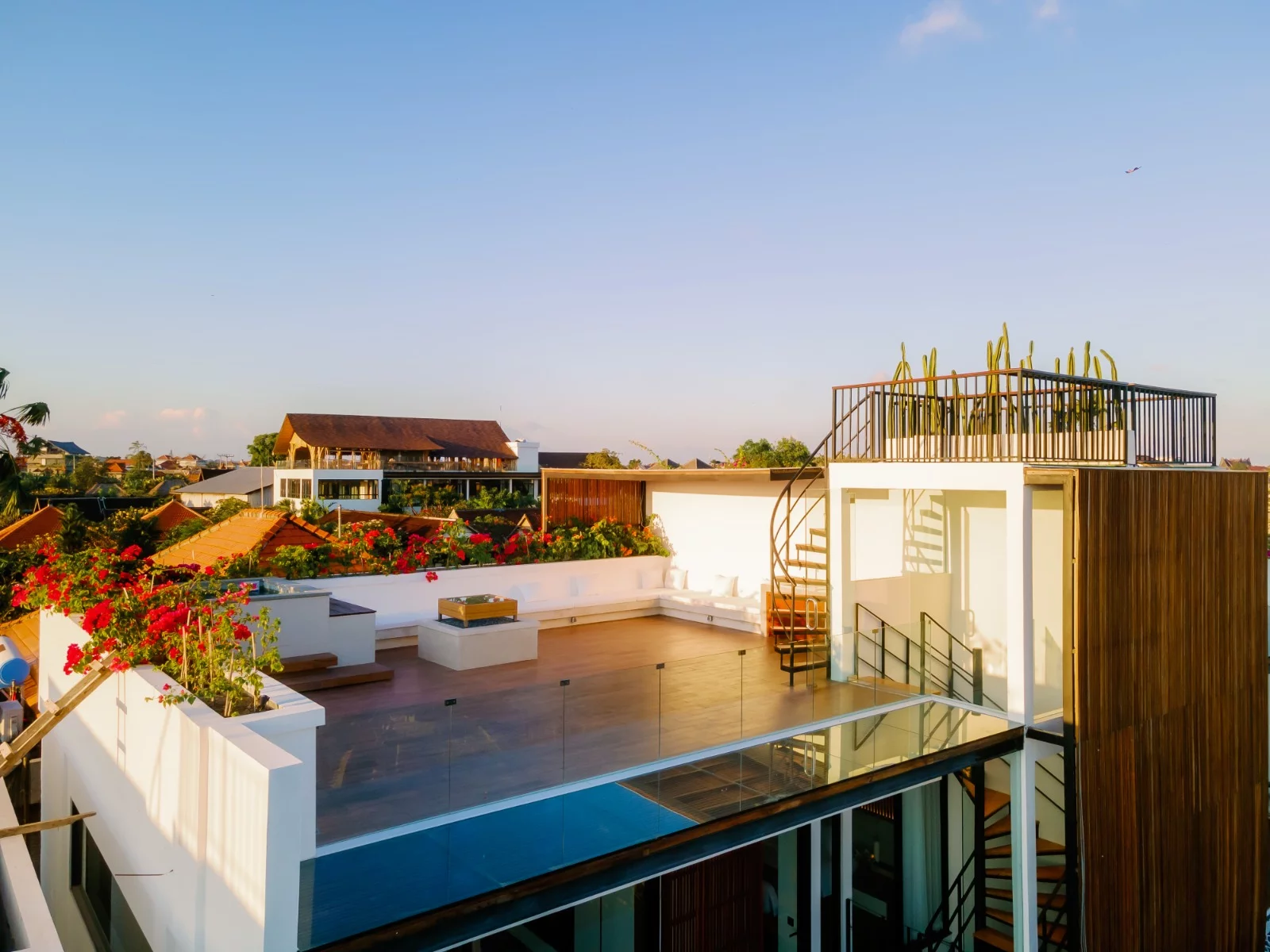
— What market cycles have you seen as experts? How does the Bali property market behave over different periods?
— In 7 years, we managed to catch both the phase of active market growth until 2020 (that is, the beginning of Covid), and the entire period of coronavirus, when it was impossible to fly to Bali and the real estate market practically did not exist; also we saw a phase of active recovery from the pandemic.
During Covid, the rental market was completely reoriented towards permanent residence: all villas that were previously rented to tourists on a daily basis turned into places for monthly living. Moreover, a 4-bedroom villa could be rented to four different people or small families, where everyone lived in a separate bedroom and paid for it monthly.
During this period, those who owned villas on a long-term contract (25–30 years), through this type of rental, could recoup their expenses. Those who took shorter rental periods (for example, for a year) and rented out the property on a daily basis, of course, suffered the most, because it was very difficult to return the money within a year.
I note that even during the Covid period, transactions for the purchase of real estate in Indonesia took place, and some people managed to enter even at the very early stage of the start of construction, then resell their properties. But of course, the volume and number of such transactions were 10 times less than when Bali was opened.
Overall, COVID-19 is, of course, an unprecedented period. Even the volcanic eruption that happened many years ago did not have such an impact on the island's market.
— Based on this, the question arises: how should developers think through financial risks in order to stay afloat even in times of crisis?
— In fact, this is a very important question, since the market is cyclical one way or another. And during periods when there is crazy growth, quite a lot of small developers appear on the market who do not have sufficient financial resources, take on increased risks and start projects without being able to complete them.
As a rule, such developers think that it will be enough for them to have 10% of the required amount for the project (or even less), and the remaining 90% will be raised through active sales. In this case, if the market enters a slightly calmer phase, such developers do not have the financial ability to continue construction and are forced to stop construction or delay it. Subsequently, the cost of the project increases even more. All this leads to dire consequences for both developers and investors.
Therefore, developers must remember the golden principle: you cannot start a project without being able to complete it if something goes wrong. That is, the developer must have either its own financial resources or funds already guaranteed by the investor, which, if necessary, can be raised on pre-agreed conditions.
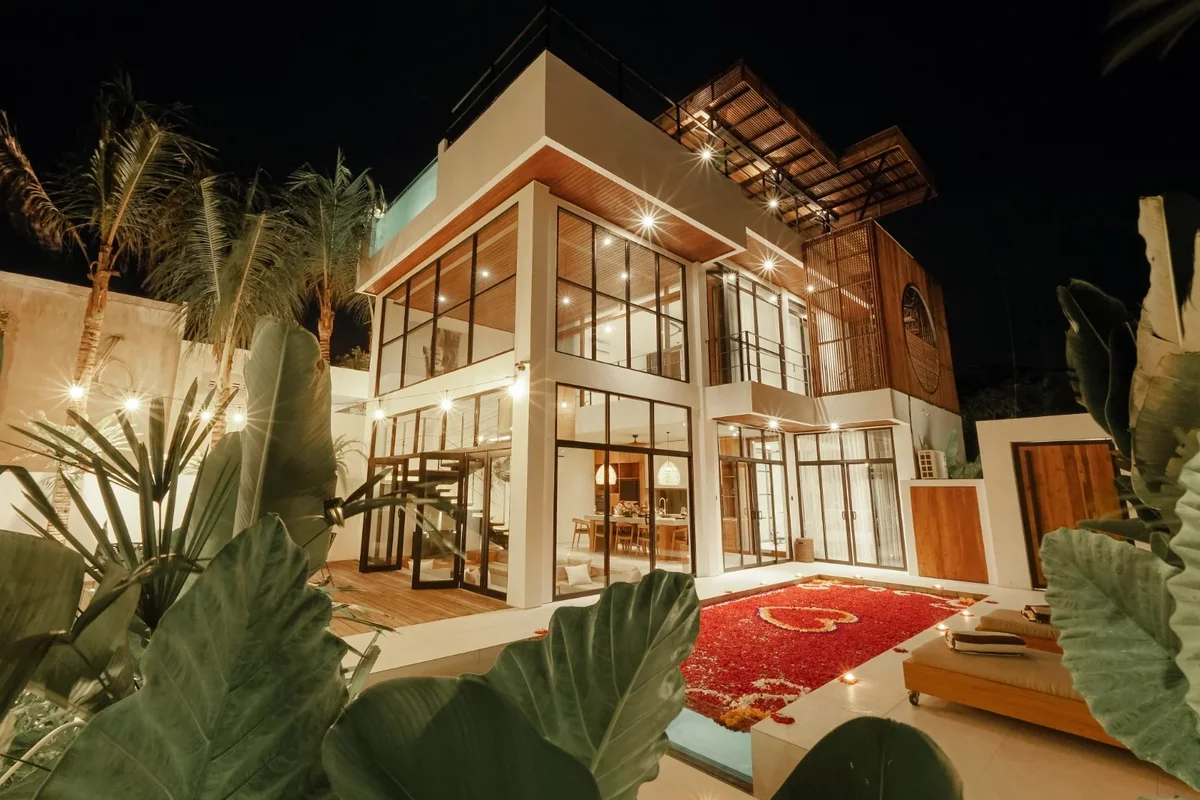
“Construction of projects may take from six months to two years”
— Let's move on to the actual construction process on the island. Please tell us what stages it includes?
— Any construction begins with the development of a project. This procedure includes, first of all, conceptual design, after which detailed documentation is developed. It calculates the structure, load, and also prescribes the ability to withstand seismic activity.
Also, the procedure for constructing properties includes an architectural part, which will show in detail where and what materials are used, how the interior partitions are located, and so on.
And the third stage is the so-called “Mechanical, electrical and plumbing (MEP)”, that is, everything related to plumbing, electrical, ventilation, etc.
After the project has been developed, it is necessary to calculate everything into an estimate, hold a tender, select a contractor and begin construction work.
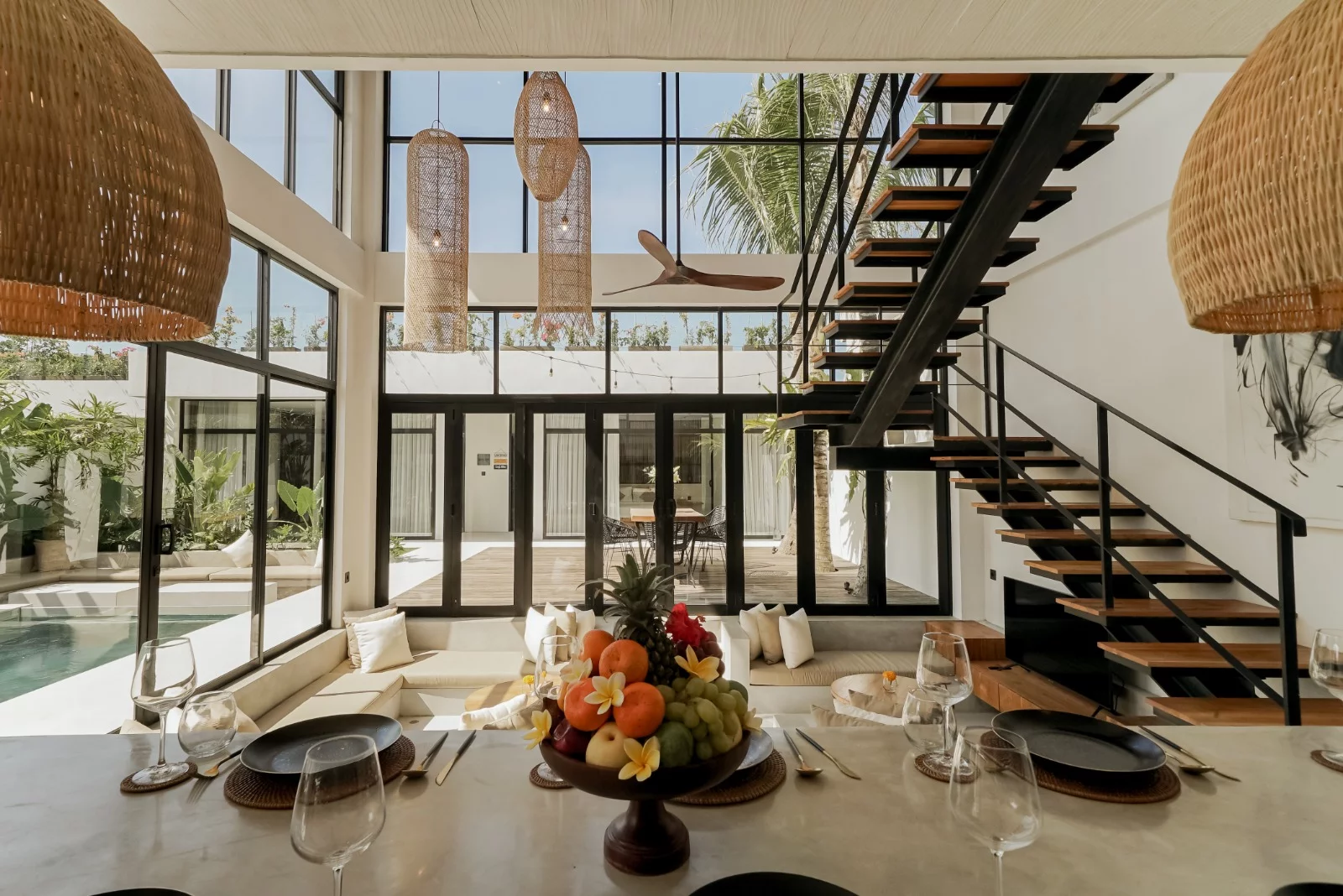
— As construction work progresses, quality is assessed, compliance with the required technology during work is checked, discrepancies/violations are identified and, if any, eliminated.
During the construction phase, several levels of technical supervision must be provided to ensure that the quality of the project will be at a high level. First of all, such supervision is carried out directly by the contractor. In addition to it, an internal technical supervision service is needed, which will make an assessment and give its opinion. Plus, it is recommended to involve external independent technical supervision as another level of verification.
After completion of construction, acceptance takes place in several stages and transfer of the property to the new owner. After this, warranty service begins, during which all defects identified during operation are also eliminated by the contractor.
— How long does the process take from construction to commissioning?
— It depends on how big the project is. Deadlines may vary greatly. For example, it is possible, in principle, to build a detached one-story villa with a pitched roof in six months. If we are talking about a three-story villa with a usable roof, then this may take 11-13 months.
In the case of large-scale construction (for example, when a large complex is being built with common infrastructure and engineering systems, as well as the need to coordinate the internal logistics of the construction site), the time frame can be up to 14-15 months - if it is a complex of villas, and up to 1.5-2 years—if the complex has four-story apartments.

“In addition to villas, townhouses and apartments are now in great demand in Bali”
— What is the situation with land and its availability for construction in Bali?
— Of course, in Bali there are restrictions on how the land can be used. There are three main types of land on the island:
- Land intended for agriculture, on which nothing can be built, especially for commercial use. Some types of land can be used to build 10-20% of it, but again not for commercial use or short term rentals.
- “Yellow land” is land on which capital construction can be carried out, but at the same time they are intended only for residential purposes, excluding the possibility of making a profit through short-term rentals.
- “Tourist land” is the most interesting type of land. This is the land that is most often located at a distance of up to 1 kilometer from the ocean, or closer to the center of popular cities. On such land it is possible to build not only villas, but also apartments and hotels, with the possibility of renting them out on a daily basis.
— What is currently being built in Bali, what types of properties are the most popular?
— First of all, it is worth dividing properties into 2 types: investment and residential; sometimes there is also a mixed type of use.
Large villas continue to be in demand, because initially Bali was all about this type of real estate. Foreigners often buy them for their own use: Australians and New Zealanders continue to buy 4-bedroom villas to live there for six months or three or four months a year, and rent out the rest of the time.
Of the relatively new formats, townhouses appeared first: the first such significant project with high-quality positioning was launched 3-4 years ago, and since then many developers have replicated similar projects, seeing interest from buyers.
Also, in the last 1-2 years, the apartment type has begun to actively develop in Bali. It is especially gaining momentum in areas such as Canggu, Bukit and Ubud, where until recently only hotels could be found.

“The most popular locations remain so even during a market downturn”
— Share your experience: how to build profitable real estate that will benefit the investor?
— For us, the determining factor remains the location: it is necessary to understand that a tourist who flies to Bali spends here on average 1–2 weeks, and naturally, he tries to choose a better location - either as close as possible to the ocean, or if it is Ubud, then closer to its center.
According to our observations, the average tourist spends about a week in Canggu and the surrounding area (Berawa or Pererenan), he can also stop by Bukit for a few days, and Ubud for another two or three days. At the same time, his budget for a night in a one-bedroom apartment can reach $150-250.
Therefore, we understand that people will always give preference to a location where they can walk to the beach, go to the most fashionable and famous beach clubs, cafes, restaurants, and night bars.
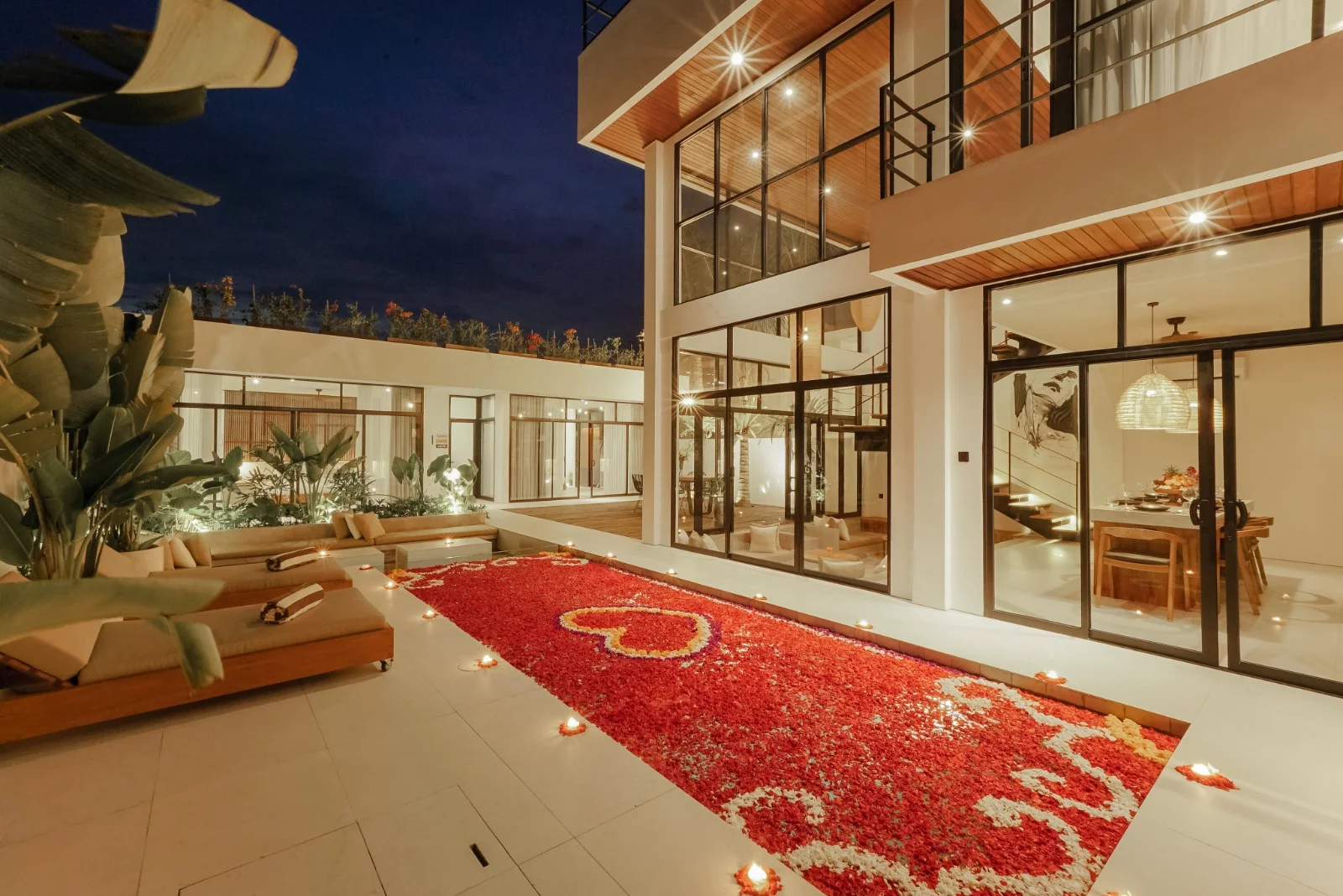
If we are talking about locations remote from the ocean and other points of tourist attraction, then most often we are talking about monthly rentals. That is, such locations are relevant for people who want to live on the island longer. Accordingly, they can distribute the budget differently, being prepared to pay approximately 2-3 thousand dollars a month. From the point of view of profitability and business case, such real estate is already less attractive.
By the way, just during the coronavirus, we observed that the most popular locations remained the same during the market downturn: that is, life was still in full swing in Canggu, and even new establishments were opening, but away from the ocean, in all the controversial locations, at that moment they almost became extinct.
Therefore, after all, we form 80% of the portfolio around proven and predictable locations, where it is more likely and at different market cycles to guarantee investors greater profitability in the long term.
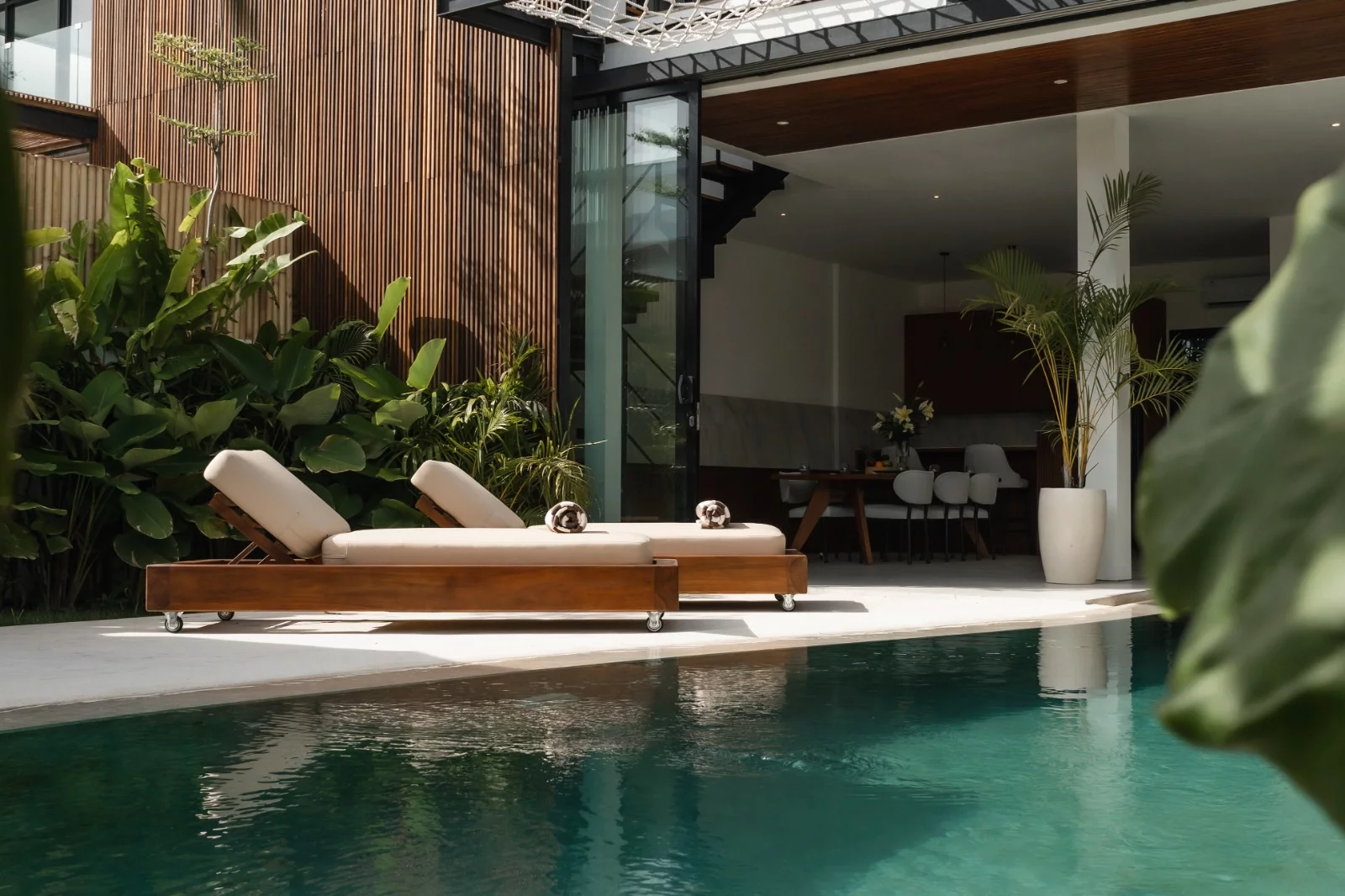
From the point of view of filling and designing the property, there are also a lot of nuances that need to be taken into account. For example, the Instagram factor. Often people go for experiences that they can share with their friends, including on social networks.
Therefore, it is very important to think through Instagram zones in advance — this could be a bath in tropical thickets, an infinity pool against the backdrop of the jungle, behind which lie kilometers of rice fields, and so on. This will allow you to ensure the occupancy of accommodation, as well as receive free viral advertising.
And the third important factor is the level of service and customer experience that your guest will receive. For example, we have a butler assigned to each villa, who accompanies the client throughout his entire journey: from the moment of meeting him at the airport to solving various kinds of issues such as renting a bike or organizing a barbecue.
“Turnkey property management completely frees the owner”
— Continuing the topic of customer experience and service: what is turnkey property management?
— In short, the investor or villa owner does not need to worry about anything, only once a month to receive a financial report and the corresponding amount of income into the account. All worries fall on the company that is engaged in such management.
The first thing such an organization needs to do is to provide the property with occupancy and guests. To do this, you need to engage in marketing, sales, communication with potential clients and subsequent closing of transactions. This is followed by full support of the client and discussion of all his additional requests.
The next block is cleaning and maintenance (“housekeeping and maintenance”). This includes both simple regular cleaning, pool cleaning, garden care, and more serious things - regular checks of the technical condition of the facility, identifying existing and potential defects, and carrying out preventive repairs. This also includes the implementation of additional solutions to increase the financial attractiveness of the property: for example, a smart home function, solar panels, and various redevelopments.
To summarize, we can say that turnkey property management completely frees the owner from the need to think about the fact that some of his needs are not covered. He can simply enjoy passive income, or use his villa independently, without thinking about everyday problems.
Author
I am responsible for editorial work. I write expert interviews and guides.








